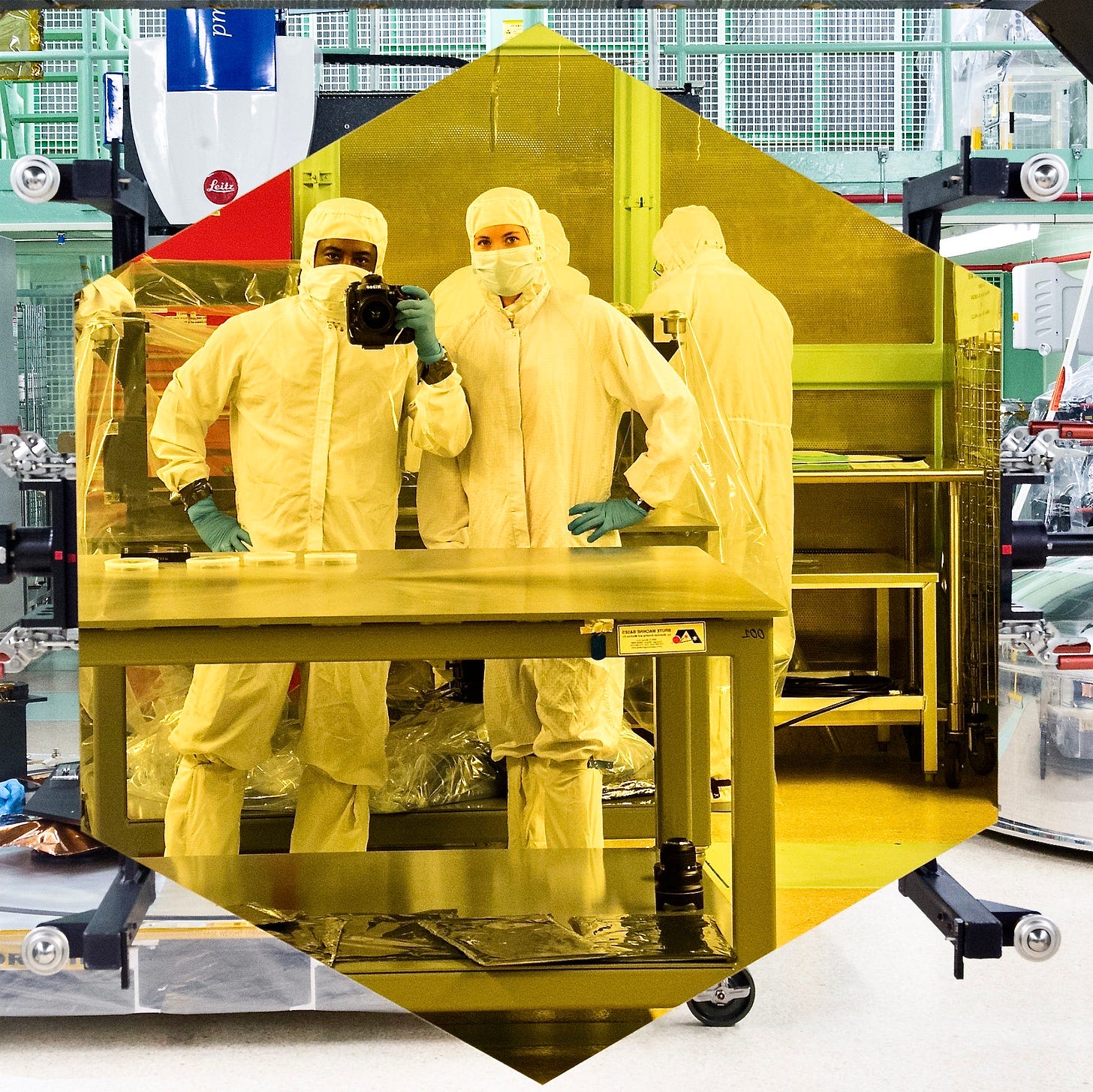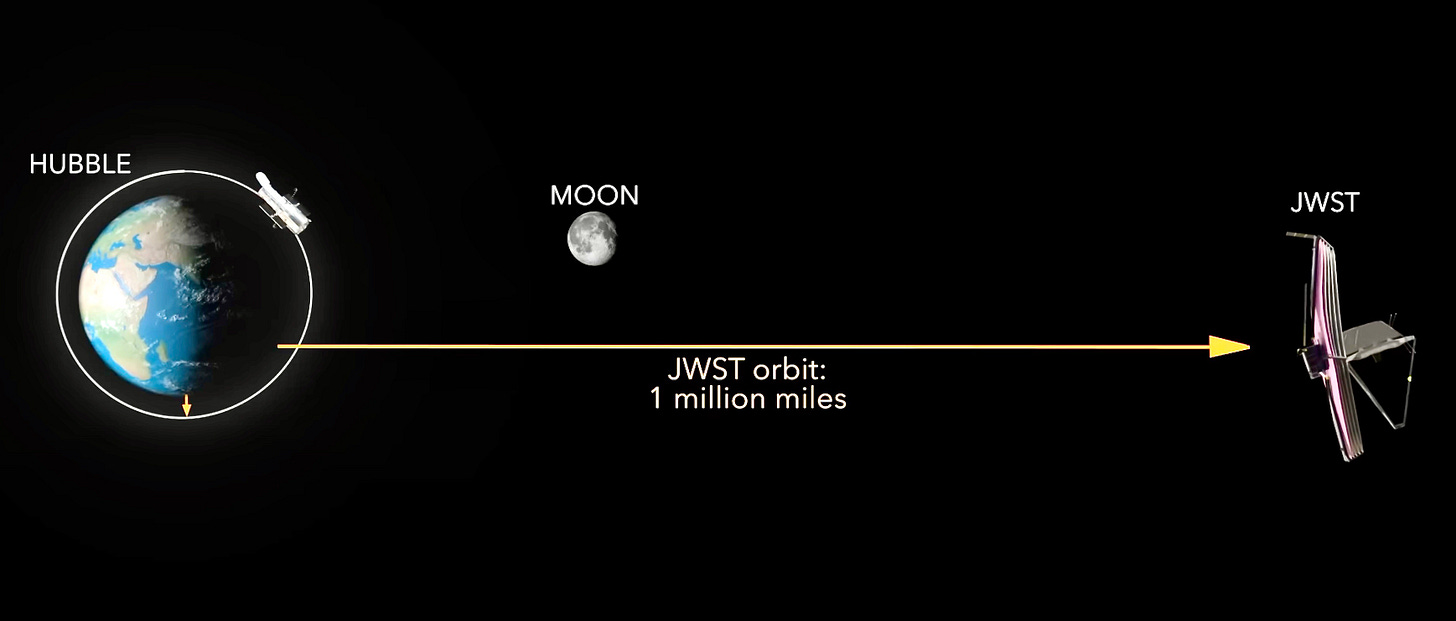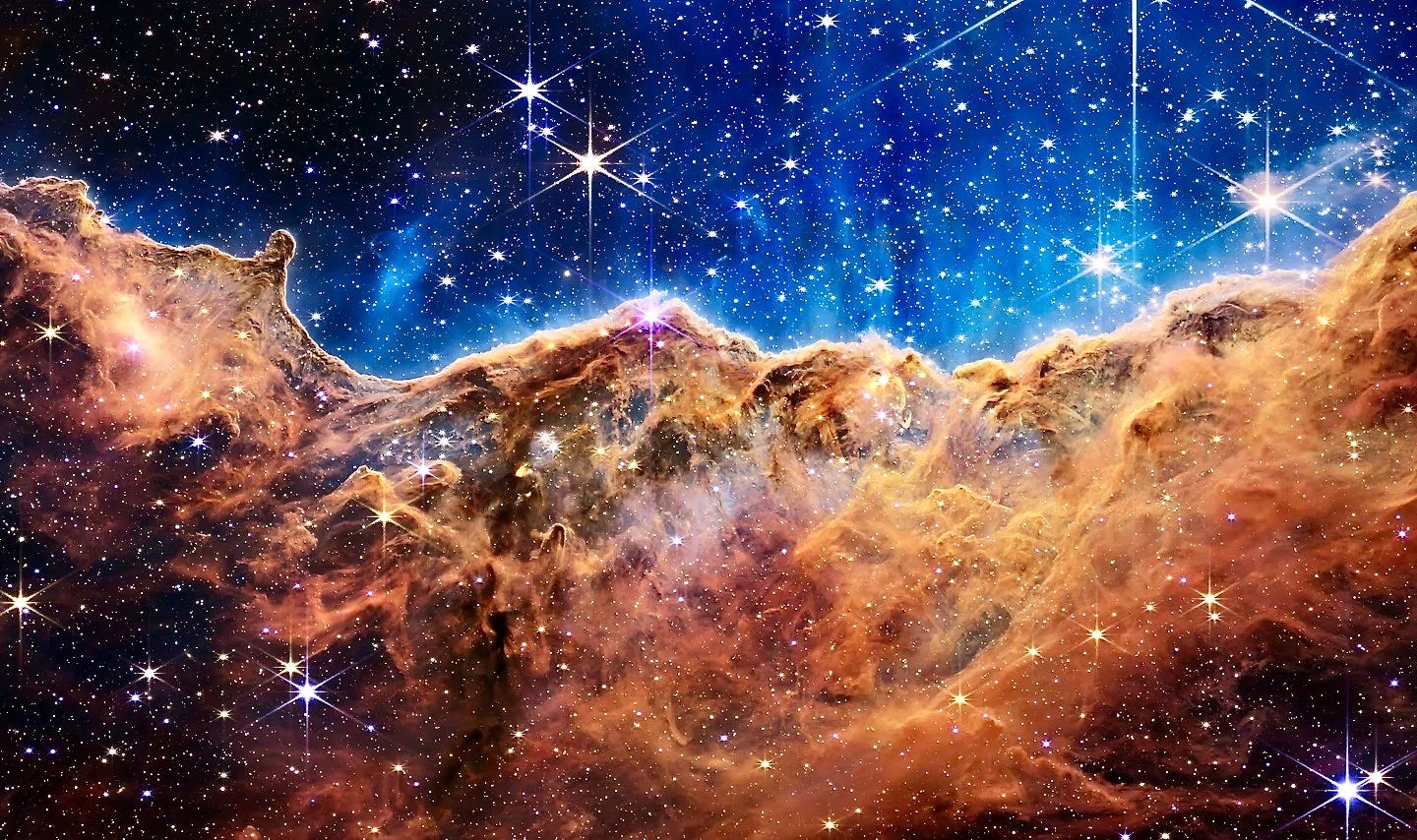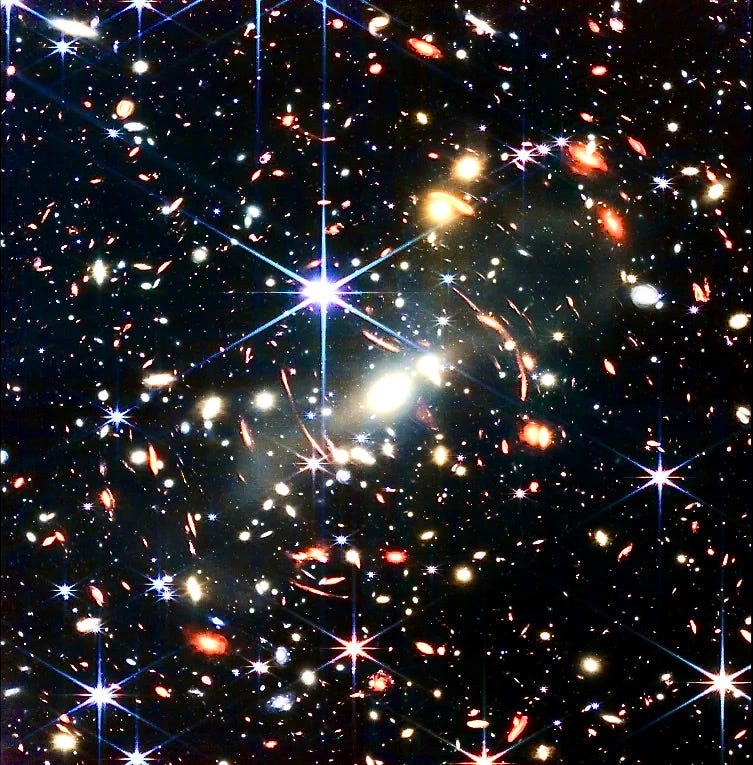searching for meaning in the Cosmos
with Sagan, Straughn, Bahcall, Einstein & Harari
Wherever Galileo pointed his telescope, he made major new discoveries. Look at the Moon, you find mountains and craters; look at Saturn, you find rings; look at the Milky Way, you find it is littered and composed of Stars. Every one of these discoveries, things that people had not known before.
I think it’s going to be very similar with the space telescope. It will illuminate celestial objects that we know about; it will discover celestial objects never before guessed; it will provide insights into the most important questions such as stellar evolution, such as the search for planets going around other stars, and the grandest cosmological questions of the origin, nature, and fate of the Universe.
Space telescope is a kind of grand, intellectual adventure for all of us… which will cast light not just on the Cosmos but on ourselves…
Carl Sagan, (1934 – 1996), American astronomer, philosopher, poet…

JWST
a telescopic, time machine
28 feet tall, 7 tons
with a gold-coated, primary mirror
made of 18, hexagonal segments
spanning 21 feet (in diameter)
the most complex telescope ever built
employing thousands of scientists for decades
at a cost of 10 billion US dollars
the most powerful telescope (ever launched into space)
an orbiting, infrared observatory
allowing us to peer back in time
to a few hundred million years after the bang
One of the amazing things about telescopes… is that they are literally time machines. They allow us to see the Universe as it was in the distant past.
Amber Straughn, (1979 – ), American astrophysicist…

a golden, new age for astrophysics
an open, new window on the Cosmos
currently orbiting our Sun
1 million miles from Earth
3,000 times farther than Hubble
in search of the unknown
in search of questions
how did the Universe evolve?
how do galaxies form?
how did we get here?
what is our place in the Cosmos?
are we alone?
what is dark matter?
The most important discoveries will provide answers to questions that we do not yet know how to ask… and will concern objects we have not yet imagined.
John N. Bahcall, (1935 – 2005), American astrophysicist…
if i — had a room — on an orbiting — infrared observatory
i’d point my lens — toward the cliffs — of carina
a stellar nursery — 7,000 — 500 — light-years — from Earth
i’d surf the long — infrared waves — back in time
into a vast — distant — early Universe
i’d look deep — deep — into nature
& i’d wonder
Look deep, deep into nature… and then you will understand everything better.
Albert Einstein, (1879 – 1955), German-born physicist…
if i — had a room — on JWST
i’d see a field — with thousands — of galaxies
each one — made of billions — of stars
i’d see far — back in time
to more than 13.5 — billion years ago
i’d see the light — from a burgeoning — Universe
the first stars — & the early — forming galaxies
i’d see humans — on Earth — launching rockets
in search of meaning
As far as we can tell, from a purely scientific viewpoint, human life has absolutely no meaning. Humans are the outcome of blind evolutionary processes that operate without goal or purpose. Our actions are not part of some divine cosmic plan, and if planet Earth were to blow up tomorrow morning, the Universe would probably keep going about its business as usual. As far as we can tell at this point, human subjectivity would not be missed. Hence any meaning that people ascribe to their lives is just a delusion.
The other-worldly meanings medieval people found in their lives were no more deluded than the modern humanist, nationalist and capitalist meanings modern people find. The scientist who says her life is meaningful because she increases the store of human knowledge, the soldier who declares that his life is meaningful because he fights to defend his homeland, and the entrepreneur who finds meaning in building a new company are no less delusional than their medieval counterparts who found meaning in reading scriptures, going on a crusade, or building a new cathedral.
So perhaps happiness is synchronising one’s personal delusions of meaning with the prevailing collective delusions. As long as my personal narrative is in line with the narratives of the people around me, I can convince myself that my life is meaningful, and find happiness in that conviction.
This is quite a depressing conclusion. Does happiness really depend on self-delusion?
Yuval Noah Harari, (1976 – ), Israeli historian, writer, social critic…
searching for meaning in the Cosmos
our human condition1
we’re pattern-seeking animals
& we’re constantly in search of meaning / purpose
i believe
that there is no meaning or purpose
just the meaning & purpose we create
i believe
in the power-of-art, of music, & of storytelling
to penetrate, to the core, of our experience
i believe
in nature… & uncertainty…
and i draw humility, from our dance, with the unknown
i believe
that our purpose here… our meaning…
is to enlighten
to unburden
to support one another through this journey
(with empathy, compassion, & love)
bonus quote
Life — has no meaning — the moment — you lose — the illusion — of being — eternal.
Jean-Paul Sartre, (1905 – 1980), French writer, philosopher…
the human condition — (freedom ~ mortality ~ loneliness ~ meaning)





✨....and, we are all made of that star dust ✨
Many of the elements in our bodies were made in a star and many have come through several supernovas.The star particles in our bodies have been existed for billions of years and will persist for billions of years beyond our brief time on earth. These particles were all forged in the nuclear fusion fires of stars.✨